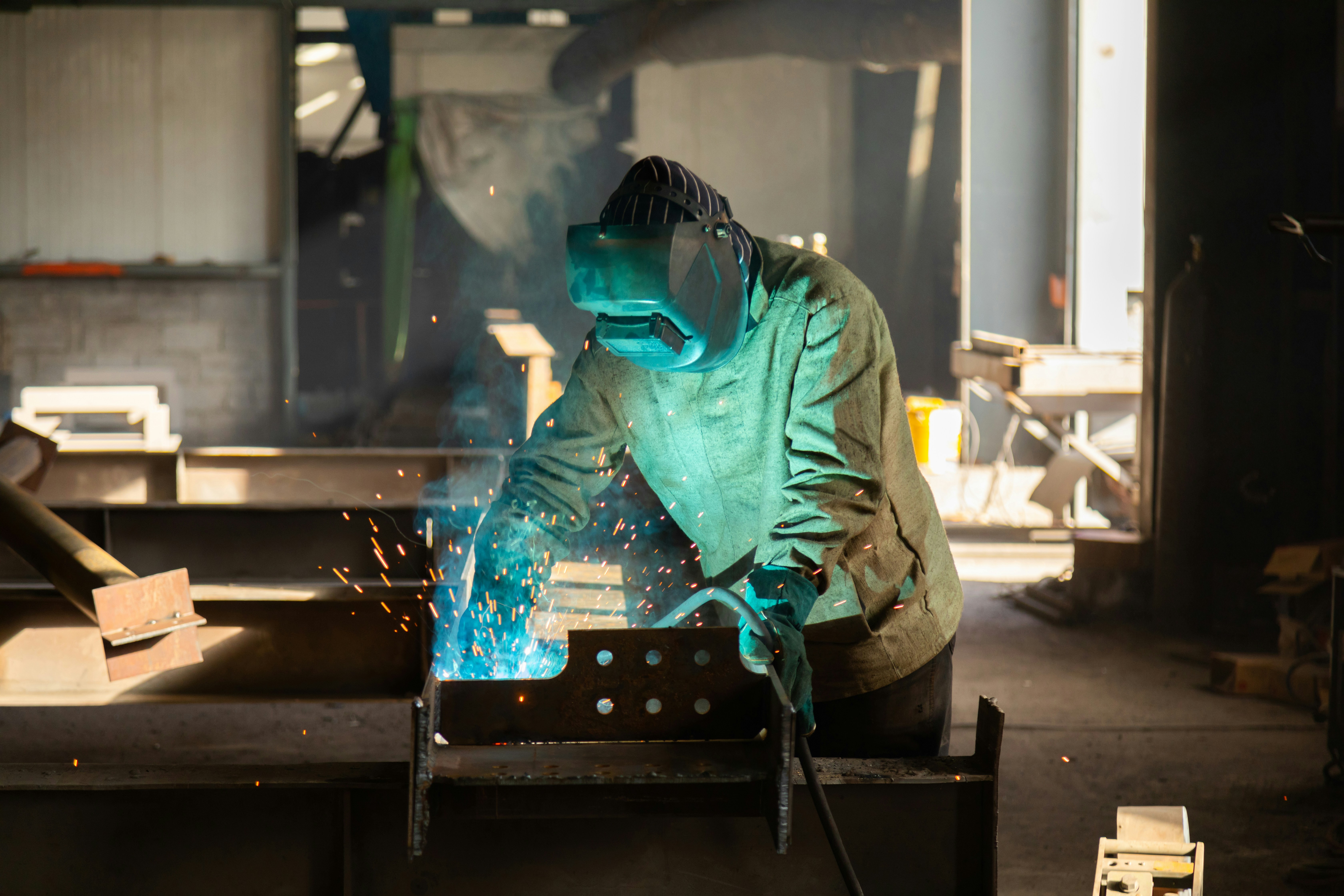Lately there has been a shift in the manufacturing sector due to progress. Artificial intelligence (AI) specifically has become a player in providing answers to difficult problems. For manufacturing companies incorporating AI isn't a fad. It's crucial for staying and staying in the game.
AI assistants, like CrewAI agents, have played a role in automating tasks and improving efficiency within industries by streamlining operations and enhancing product quality without the need for constant human involvement.
The possibilities of AI in manufacturing go beyond automation to include maintenance and quality control among other aspects such as supply chain optimization. With startups aiming to establish their presence in an environment like this one, it is essential for them to grasp and integrate AI technologies for progress and creativity.
The Hurdles Faced by Startups in the Manufacturing Industry
Starting a manufacturing business is quite an endeavor for entrepreneurs in this industry as they encounter obstacles such as obtaining funding and setting up supply chains while adhering to regulations diligently. One of the priorities for these ventures is ensuring a swift entry into the market to stay ahead of the competition.
AI technology provides a way to tackle this issue by allowing new businesses to streamline their operations and shorten the time it takes to produce goods. Whenever startups use AI-powered data analysis and automation, it helps them make informed choices, predict market trends, and adapt quickly to evolving needs. This flexibility is crucial for startups striving to position themselves as frontrunners in their industries.
In addition to that point about AI in manufacturing helping startups tackle resources, when routine tasks are automated by AI systems within these startups' operations, it frees up the workforce to work strategically and creatively rather than on repetitive tasks - leading to increased productivity and a more innovative and constantly evolving workplace culture.
Examining the Practical Applications of AI Agents in Streamlining Business Operations
The utilization of AI agents for automating business processes is extensive and diverse with possibilities for businesses in the manufacturing industry. There is an application in maintenance where AI agents examine data from machines and tools to anticipate possible malfunctions in advance. This proactive strategy helps decrease downtime, cut maintenance expenses, and prolong the life of equipment.
Quality control is another application for AI technology as it can analyze data from manufacturing processes to detect faults and irregularities promptly. This guarantees that only top-notch goods are introduced to the market, which boosts customer happiness and builds brand credibility. Startups rely on crafting a brand perception to draw in and keep customers.
In the realm of supply chain enhancement lies another strength of AI agents; their ability to scrutinize supply chain data for patterns and trends to pinpoint inefficiencies and propose enhancements that result in cost savings and faster delivery times-an advantage for startups aiming to expand their operations.
The rise of trained transformers (known as GPT) has paved the way for fresh opportunities in the manufacturing sector. By fine-tuning GPT for internal tools, startups can boost communication efficiency and streamline data processing and decision-making processes. This requires tailoring the model to suit individual business requirements and smoothly integrating it into current operational procedures.
In the manufacturing sector and beyond, GPT has found use in data analysis tasks where it helps in analyzing datasets to offer strategic insights for decision-making purposes. This can greatly benefit startups by improving their operations efficiency and spotting growth potentials to keep them competitive in their respective industries.
Moreover, GPT can help with managing knowledge and sharing information in a startup. By automating the documentation and reporting procedures, GPT guarantees that essential information is readily available to all team members, promoting teamwork and creativity. This proves advantageous for startups with limited resources as it enhances the productivity of their employees.
The Potential Impact of Artificial Intelligence on Emerging Manufacturing Companies
As AI technology advances further in its development journey, its influence on emerging manufacturing companies will become increasingly significant. The incorporation of AI agents and resources such as GPT holds the potential to revolutionize the way startups function, create ideas, and vie in the market. Entrepreneurs operating in the manufacturing domain must now view the adoption of AI not as a choice but as a necessity for ensuring success in the future.
In the realm of intelligence's role in manufacturing's evolution lies the emergence of factories as a pivotal trend to watch out for in the future landscape of industry growth and development. These advanced industrial facilities rely heavily on AI technologies to enhance efficiency across all production phases - be it in managing resources or reducing energy usage. For fledgling companies venturing into this arena and embracing factory solutions into their operations, it can yield an edge over competitors by empowering them to produce top-quality goods at more competitive price points.
In addition to that point, AI-powered customization and individualization are poised to transform the landscape of product innovation by examining consumer preferences and market patterns. AI assists businesses in crafting products that cater to the precise requirements of their desired customer base. This personalized approach not only boosts consumer contentment but also fosters brand devotion and business expansion.
In summing up the discussion about AI agents in the manufacturing sector revolutionizing the landscape and providing chances for startups to be creative and succeed is evident. From streamlining operations to improving decision-making capabilities, AI technology serves as an asset for aspiring entrepreneurs aiming to carve out a niche in this cutthroat field. By grasping and utilizing the capabilities of AI, manufacturing startups can surmount obstacles, speed up their market entry, and attain steady progress.
In the changing landscape of the manufacturing industry, companies that adopt AI technology will likely take the lead, raising the bar for effectiveness, quality, and creativity. The outlook for the manufacturing sector appears promising, with AI playing a role in driving this shift forward.












